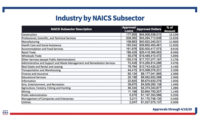State departments of transportation and construction industry groups have scored a major win, with the enactment of legislation that cancels a threatened $7.6-billion cut in federal highway funds.
The highway provision is attached to a stopgap continuing resolution, or CR, that keeps federal agencies operating through Dec. 20. The measure gained final congressional approval on Nov. 21, when the Senate cleared it on a 74-20 vote.
President Trump signed the bill later that day, just hours before an earlier CR was due to expire.
The House approved the bill two days earlier, by a 231-192 vote.
The American Association of State Highway and Transportation Officials and other pro-infrastructure groups had been pushing for months for Congress to abolish the highway funding cut. AASHTO had tried without success to attach anti-rescission language to various other bills, such as the budget agreement enacted earlier this year.
Joung Lee, AASHTO's policy director, said via email on Nov. 21, "We couldn't be more relieved to finally get this addressed."
The cutback in highway contract authority, mandated in the 2015 Fixing America’s Surface Transportation (FAST) Act, was scheduled to take effect on July 1, 2020. When the FAST Act was passed, the rescission was viewed as a way to reduce that bill’s overall price tag.
Adding urgency to the rescission-repeal campaign, the Federal Highway Administration recently released figures showing that, as of Sept. 30, states had $5.4 billion in unobligated highway funds that would be rescinded next year. To fulfill the $7.6-billion cut, that meant that states would have lost another $2.2 billion that they already obligated to projects.
In a Nov. 14 letter to congressional leaders, AASHTO and 41 other construction, transportation, state and local government groups said that it was "especially critical” to undo the rescission during calendar 2019 because in “the worst-case scenario” states might have to de-obligate funds for current projects to hit the $7.6-billion target.
“If this happens next spring or summer at the peak of the construction season, the effect would be especially devastating,” the groups said.
According to a FHWA state-by-state table dated Oct. 30, Texas would have lost the most of any state under the rescission, $960 million.
New Jersey ranked second, with $630 million; followed by Pennsylvania, with $469 million; Illinois, with $452 million; and Missouri, with $350 million.
House Transportation and infrastructure Committee leaders praised including the rescission repeal in the stopgap CR.
Committee Chairman Peter DeFazio (D-Ore.) said in a Nov. 18 statement that the provision would “give states the certainty they need to carry out long-term projects that make a difference."
Rep. Sam Graves (Mo.), the committee’s top Republican, called the rescission fix “a major victory for every state across the country.”
Jim Tymon, AASHTO executive director, said in a statement released late on Nov. 21, "The resolution of this issue comes at a time when states are preparing their budgets for the coming construction season, eliminating a potential uncertainty that could have delayed important transportation infrastructure investments."
Looking ahead
National Asphalt Pavement Association President and Chief Executive Officer Audrey Copeland said in a Nov. 19 statement that by adding the anti-rescission language to the stopgap bill, “Congress will both keep the government open and keep state highway programs on track.”
But Copeland noted that the rescission remedy “only addresses short-term needs.” She called on Congress to pass a multi-year surface transportation reauthorization measure.
Neil Bradley, U.S. Chamber of Commerce executive vice president, in a statement, welcomed the congressional action as a "step in the right direction." But he also urged congressional lawmakers "to continue their efforts to further address the modernization of America's infrastructure."
The Senate Environment and Public Works Committee has cleared a multiyear highway measure, but other committees that have jurisdiction over other components of a surface transportation package, especially provisions to raise needed revenue, have not yet acted. The current authorization, the FAST Act, expires on Sept. 30, 2020.
With the CR's enactment, attention now will focus intently on whether Senate and House appropriators in the coming weeks can strike a compromise to pass spending bills for all federal agencies, including their infrastructure programs, for the rest of fiscal 2020.
Story updated on Nov. 21 to include Senate passage and Trump's signing of the bill.



